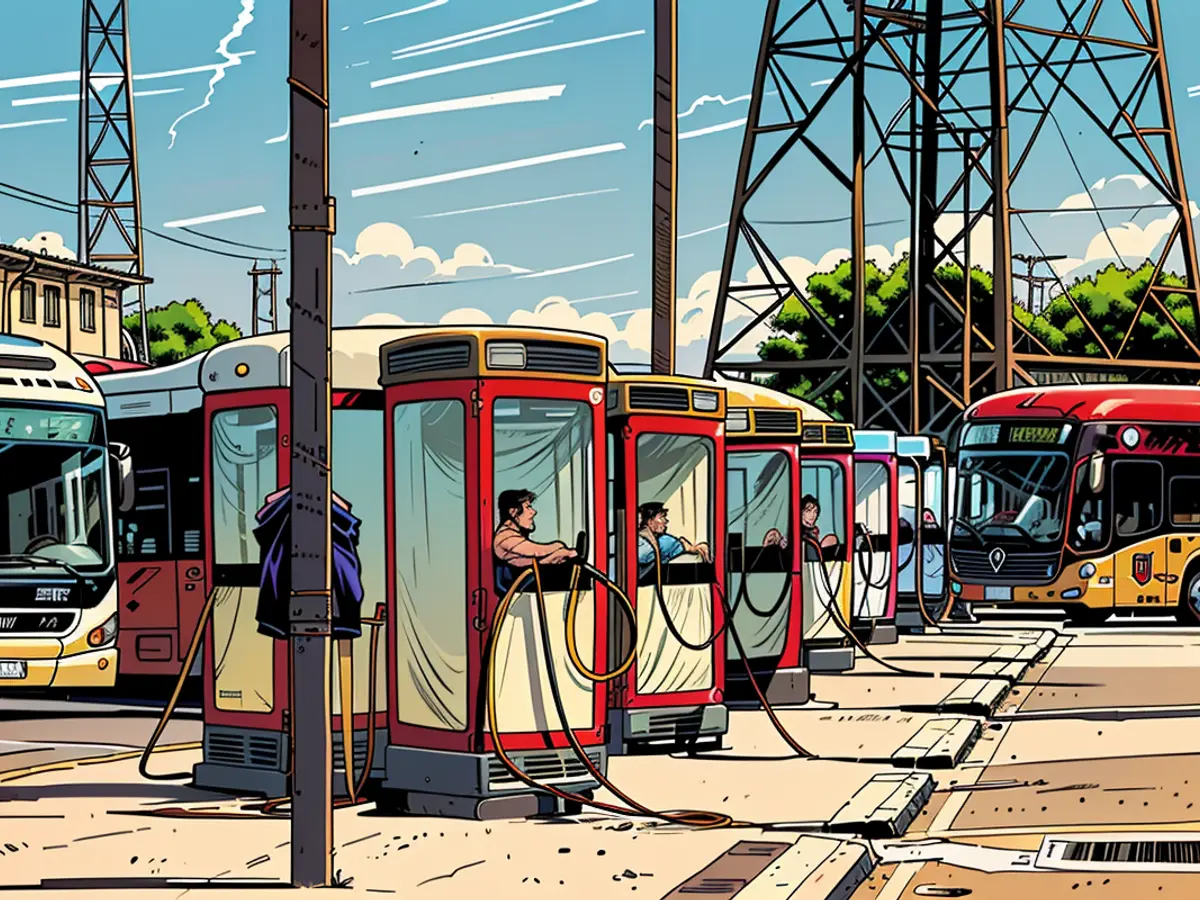Mobility transition - Hamburger bus fleet should be electrified by 2032
The complete electrification of all Hamburg buses is coming later than originally planned. "The bus fleets of Hochbahn and VHH should be fully converted to buses with emission-free drives by 2030," it was still stated in a resolution of the Senate on September 11, 2019. However, Hochbahn now states that the conversion should be "completed by the early 2030s." Finance director Merle Schmidt-Brunn names the year 2032. Until then, the existing diesel buses are still "wonderfully usable."
The transportation companies Hamburg-Holstein (VHH) no longer give a concrete date. In the autumn of the previous year, managing director Lorenz Kasch had still stated: "We want to be locally emission-free with all buses and trains in Hamburg by 2030."
Problems with funding and space
The ambitious project is facing challenges. The funding from the Federal Government runs out in mid-2025. So far, the Federal Government has covered 80 percent of the additional costs for an E-Bus, which is approximately twice as expensive as a diesel bus. Kasch reports delays in the construction of depots. The many charging stations, workshops, and substations for power supply require large areas. "That's not always trivial," says Kasch. The managing director appeals to the municipalities and districts to support the construction of depots more.
The original environmental policy in Hamburg aimed to fully electrify both the bus fleets of Hochbahn and VHH by 2030. Due to funding and space constraints, the complete electrification of Hamburg buses has been pushed back to the early 2030s. This delay also affects the tram system, as its electrical infrastructure is intertwined with the bus lines. The climate crises continues to emphasize the importance of transitioning to renewable energy sources in transportation, such as the electrification of bus lines.








